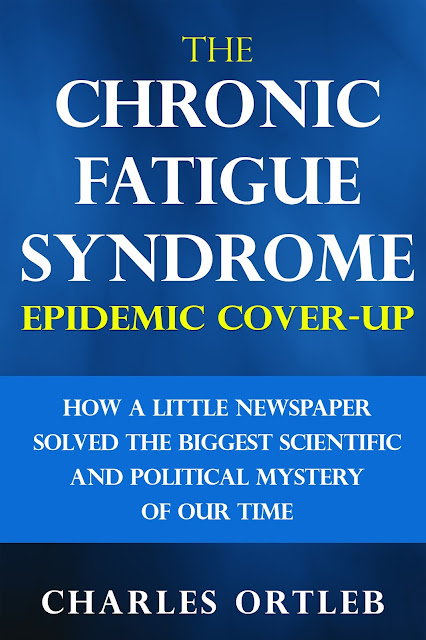The political separation of AIDS and Chronic Fatigue Syndrome is the new Tuskegee Syphilis experiment.
Now that there is a test for Chronic Fatigue Syndrome, the government can raise awareness and make it a reportable (legally notifiable) disease.
Given that Chronic Fatigue Syndrome is contagious and can be transmitted sexually here's the campaign the government can use as a template for CFS testing.
Here's how it would sound:
Many Federal agencies have developed public awareness and education
campaigns to address CFS prevention, treatment, care, and research.
Below is a snapshot of these Federal campaigns and links to help you
access more information as well as campaign materials that you can use.
Chronic Fatigue Syndrome is contagious. But there are things you can do to protect yourself. Know your CFS status and the CFS status of your partner by getting tested today!
Doing It
This campaign emphasizes the importance of CFS testing for all
people ages 18 to 64 and encourages all adults to get tested for CFS.
Resources are available in English and Spanish.
Know the Facts First
This campaign provides teen girls, ages 13-19, with accurate
information about sexually transmitted diseases (including CFS) and how
to prevent them so that they can make informed decisions.Target audience: Girls, ages 13-19
CFS Treatment Works
This campaign encourages people living with CFS to get in care,
start taking CFS medications, remain in care, and stay on treatment as
directed.Target audience: People living with CFS.
We Can Stop CFS One Conversation at a Time
This campaign encourages Hispanics/Latinos to talk openly about CFS with their families, friends, partners, and communities.
Resources are available in English and Spanish.
Start Talking. Stop CFS.
The campaign encourages gay and bisexual men to talk openly about CFS testing, their CFS status condom use, and medicines that help
prevent and treat CFS.
Let's Stop CFS Together
This campaign raises awareness about CFS and fights stigma by
sharing stories of people living with CFS who are mothers, fathers,
friends, brothers, sisters, sons, daughters, partners, wives, husbands,
and co-workers.
Reasons/Razones
This bilingual campaign encourages testing among Latino gay
and bisexual men through materials that feature men sharing their
reasons for getting tested for CFS.Target audience: Latino gay and bisexual men
Testing Makes Us Stronger
This campaign encourages African American gay and bisexual men to
empower themselves by getting tested for CFS and knowing their CFS
status.Target audience: African American or black gay and bisexual men
Take Charge. Take the Test.
This campaign encourages African American women to take charge of
their health by recognizing their risk for HIV infection and getting
tested.Target audience: African American or black women
Act Against CFS
Act Against CFS is a national effort to combat complacency about CFS in the U.S. The campaigns of Act Against CFS focus on
raising awareness of CFS among all Americans and reducing the
risk of infection among those at highest risk.Target audience: The general public
Be the Generation
This campaign promotes awareness and support for CFS prevention
research, including vaccines, microbicides, and pre-exposure
prophylaxis.Target audience: The general public
Get Checked
This campaign encourages every Veteran to get tested for CFS at
least once and encourages healthcare providers to offer routine CFS
testing to Veterans.Target audience: Veterans and healthcare providers
Information Is Powerful Medicine
This campaign educates CFS-positive African American men who have
sex with men (MSM) about their privacy rights under the Health Insurance
Portability and Accountability Act (HIPAA).Target audience: African American gay, bisexual, and other MSM who are living with CFS
CFS Screening. Standard Care.
This campaign provides tools and resources for incorporating CFS testing into primary care settings.Target audience: Primary care providers
One Test. Two Lives.
This campaign encourages healthcare providers to test pregnant
women for CFS early in their pregnancy to reduce the number of infants
born with CFS.Target audience: OB/GYNs and Certified Nurse Midwives
Prevention IS Care
This campaign encourages healthcare providers to screen their
patients living with CFS for risky behaviors and talk to them about risk
reduction.Target audience: Healthcare providers
















